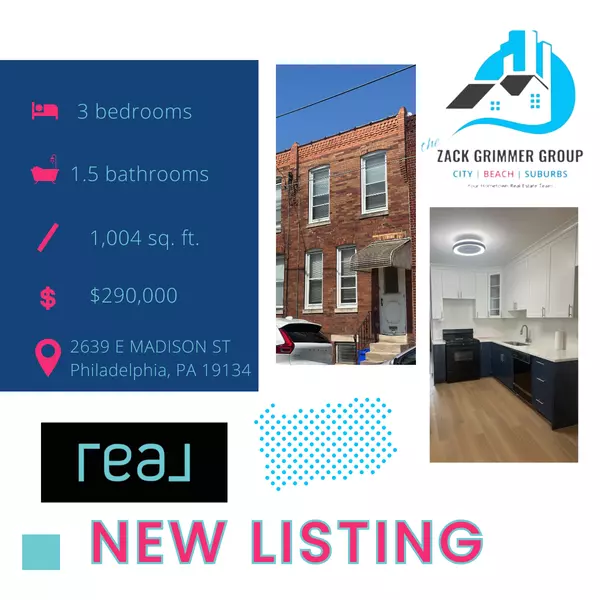Unveiling the Silent Health Threat in Your Home : January is National Radon Month
Unveiling the Silent Threat: January is National Radon Action Month

As we embark on the journey of a new year, it's crucial to shine a spotlight on the invisible menace that may be lurking within our homes – radon gas. Recognized annually in January as National Radon Action Month, this initiative aims to raise awareness about the dangers of radon exposure, educate homeowners about testing procedures, and encourage proactive measures for mitigation. In this comprehensive blog post, we will delve into the world of radon, its effects on human health, the importance of testing, and the measures available for effective mitigation.
Want more information about radon? Be sure to visit www.EPA.gov/Radon
Click HERE to learn more about the NRAP 2021-2025 Action Plan.
What is Radon?
Radon is a colorless, odorless, and tasteless radioactive gas that naturally occurs from the breakdown of uranium in soil, rock, and water. When released into the air, radon can infiltrate homes and other buildings through cracks, gaps, and openings in the foundation.
It is the second leading cause of lung cancer after smoking, responsible for approximately 21,000 lung cancer deaths each year in the United States, according to the Environmental Protection Agency (EPA). Click HERE to learn more about Radon.
How Radon Effects Your Health:
Long-term exposure to elevated levels of radon poses significant health risks, as the radioactive particles released by radon decay can be inhaled into the lungs. Once in the lungs, these particles emit alpha radiation, damaging lung tissue and potentially leading to the development of lung cancer over time. Radon-related lung cancer is a serious concern, especially for smokers, as the combined effects of radon exposure and tobacco use significantly increase the risk.
Click HERE to learn more about the Health Risks of Radon.
How Do You Test for Radon in My Home?
The first step in addressing the radon threat is to test your home. Radon testing is a straightforward process that involves placing a radon testing kit in the lowest livable area of your home, typically the basement or crawl space. These kits are readily available at hardware stores or can be obtained through certified radon professionals.
The testing period usually lasts a few days, after which the kit is sent to a laboratory for analysis. Results are then provided to homeowners, indicating the radon levels in their living space.
Looking for an at-home radon test kit? Find more information on Radon Test Kits HERE.
How do I Mitigate Radon in My Home?

If the test results reveal elevated radon levels, it's essential to take prompt action to reduce exposure. Radon mitigation systems are designed to redirect radon gas away from living areas, preventing its accumulation and reducing the risk of inhalation. Common mitigation methods include:
-
Sub-Slab Depressurization (SSD): This method involves creating a suction point in the soil beneath the home's foundation, drawing radon gas away and venting it safely above the roofline.
-
Ventilation Systems: Improving ventilation in crawl spaces and basements helps disperse radon gas, reducing its concentration within the living space.
-
Sealing Cracks and Openings: Identifying and sealing gaps in the foundation and walls is crucial in preventing radon entry. Professional radon mitigation experts can assess and address these potential entry points effectively.
Can Radon Be Found in New Constrction Homes?
Yes, radon levels can be high in new construction homes. The presence of radon depends on the geological characteristics of the area where the home is built. Radon is a naturally occurring radioactive gas that results from the decay of uranium in soil, rock, and water. It can enter homes through the ground, typically moving from the soil into the building through cracks, gaps, and other openings in the foundation.
New construction homes, like any other homes, can be built in areas with underlying geological conditions that lead to elevated radon levels. The risk of high radon levels varies by region, and it is influenced by factors such as soil composition, local geology, and the specific construction characteristics of the home.
It's a common misconception that only older homes are at risk for high radon levels. While older homes may indeed have a longer history of potential radon exposure, the risk is not exclusive to them. New construction homes can also have elevated radon levels if they are located in areas with high radon potential.

As we observe National Radon Action Month, it's imperative to urge homeowners to take proactive steps. A simple yet impactful action is to test your home for radon regularly, especially if you live in an area with known radon risks. If elevated levels are detected, don't hesitate to reach out to certified radon professionals for guidance on effective mitigation strategies.
To assist you in safeguarding your home and loved ones, we offer a free list of certified radon testing and mitigation companies in your area. Take the first step towards a healthier home environment by contacting us today. Your commitment to radon awareness and mitigation can make a significant difference in reducing the prevalence of radon-related lung cancer. Click HERE for a list of our Preferred Vendors.
In conclusion, National Radon Action Month serves as a reminder that addressing the radon threat is a shared responsibility. By understanding the risks, testing our homes regularly, and implementing effective mitigation measures, we can create safer living environments for ourselves and future generations. Let's make this January a month of action against the silent threat of radon.
Disclosure: The Zack Grimmer Group, Powered by Real or its Agents are not licensed radon professionals, and the information provided in this blog is based on research and general knowledge. For official guidelines and in-depth information, I recommend visiting the Environmental Protection Agency's (EPA) website: www.EPA.gov/Radon
Zack Grimmer Group, Brokered by Real Broker LLC is a Residential & Commercial Real Estate Team that was founded in 2021 by Zachary ‘Zack’ Grimmer. We assist our clients who are looking to BUY, RENT, SELL or INVEST in real estate throughout Pennsylvania, New Jersey, Florida and Maryland! We are tech-enabled and data-driven, giving our team the necessary tools to successfully broker real estate in any market. Our mission is to provide white-glove service to our clients and investors. Browse our website at www.ZackGrimmerGroup.com to learn more about all the real estate services we offer to our community.
Please feel free to contact us at admin@ZackGrimmerGroup.com or (215) 667-0239 or follow us on Facebook & Instagram, to learn more.
Categories
Recent Posts










GET MORE INFORMATION
Zack Grimmer
Associate Broker | Team Leader | REALTOR | Mortgage Loan Officer | License ID: RS346782 | 1973175 | BK359849

